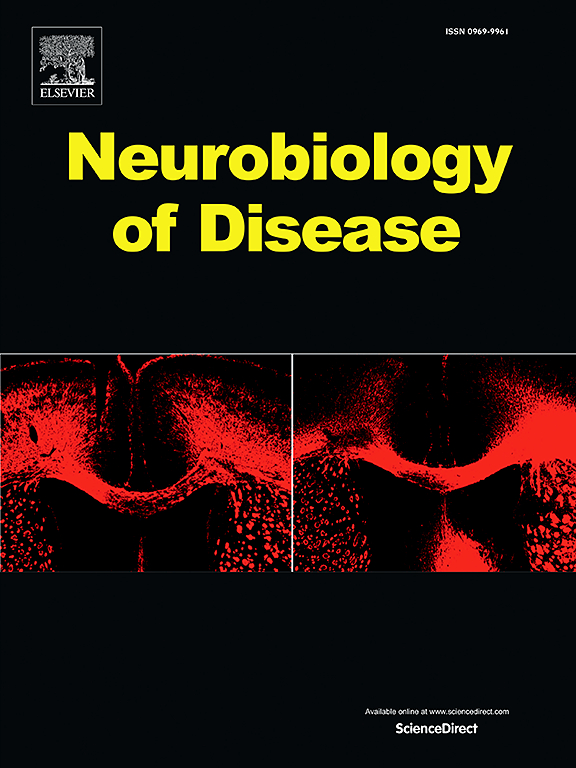The temporal onset of associations of cortical proteins with cognitive resilience vary during late life
IF 5.1
2区 医学
Q1 NEUROSCIENCES
引用次数: 0
Abstract
Background
Cortical proteins associated with cognitive resilience have been identified but their temporal onset in older adults is unknown. We present a multistage approach to first identify cortical proteins associated with cognitive resilience and then examine their associated temporal onset.
Methods
We used data from a subset of 1088 decedents from two cohort-studies who had selected reaction monitoring proteomics from the dorsolateral prefrontal cortex, and at least 3 cognitive assessments. Cognition was assessed using a composite derived from 19 tests. We first used linear mixed-effects models to identify cortical proteins associated with cognitive resilience. We then used functional mixed-effects models to examine non-linear associations between proteins and cognitive resilience to identify their temporal onset.
Results
Mean age at death was 90 years (SD = 6.4); 69 % were female. On average, cognition started to decline at around 15 years before death, with accelerated decline in the last 7 years. We identified 40 proteins associated with cognitive resilience, of which 17 proteins also showed non-linear associations. Non-linear associations indicated that higher levels of 10 proteins were associated with slower cognitive decline between 23 and 4 years before death. In contrast, higher levels of 7 proteins were associated with faster decline only within the last 7 years before death.
Conclusions
Cognitive resilience proteins are differentially related to late-life cognitive aging; the onset of proteins that maintain cognition may begin many years before the onset of proteins that hasten cognitive decline. The temporal onset of cognitive resilience proteins may be crucial for timing efficacious interventions.
皮层蛋白与认知弹性的关联的时间开始在晚年有所不同
与认知恢复能力相关的皮质蛋白已被确定,但其在老年人中的时间发病尚不清楚。我们提出了一种多阶段的方法,首先确定与认知弹性相关的皮质蛋白,然后检查其相关的时间发病。方法:我们使用了来自两个队列研究的1088名死者的数据,他们选择了来自背外侧前额叶皮层的反应监测蛋白质组学,并进行了至少3次认知评估。认知能力评估采用了19项测试的综合评估。我们首先使用线性混合效应模型来识别与认知弹性相关的皮质蛋白。然后,我们使用功能混合效应模型来检查蛋白质和认知弹性之间的非线性关联,以确定其时间起效。结果平均死亡年龄为90 岁(SD = 6.4);69 %为女性。平均而言,认知能力在死亡前15 年左右开始下降,在最后7 年加速下降。我们确定了40种与认知弹性相关的蛋白质,其中17种蛋白质也表现出非线性关联。非线性关联表明,在死亡前23至4 年之间,10种蛋白质的较高水平与认知能力下降较慢有关。相比之下,较高水平的7蛋白仅在死亡前的最后7 年内与更快的衰退相关。结论认知弹性蛋白与老年认知衰老存在差异;维持认知能力的蛋白质可能比加速认知能力下降的蛋白质早出现很多年。认知恢复蛋白的时间发生可能对有效干预的时机至关重要。
本文章由计算机程序翻译,如有差异,请以英文原文为准。
求助全文
约1分钟内获得全文
求助全文
来源期刊

Neurobiology of Disease
医学-神经科学
CiteScore
11.20
自引率
3.30%
发文量
270
审稿时长
76 days
期刊介绍:
Neurobiology of Disease is a major international journal at the interface between basic and clinical neuroscience. The journal provides a forum for the publication of top quality research papers on: molecular and cellular definitions of disease mechanisms, the neural systems and underpinning behavioral disorders, the genetics of inherited neurological and psychiatric diseases, nervous system aging, and findings relevant to the development of new therapies.
 求助内容:
求助内容: 应助结果提醒方式:
应助结果提醒方式:


